第89章 CHAPTER XIII(4)
When we awoke next morning it was broad daylight, and we found a crowd of natives in front of the tent. Our arrival was evidently regarded as an important event, and all the inhabitants of the aoul were anxious to make our acquaintance. First our host came forward. He was a short, slimly-built man, of middle age, with a grave, severe expression, indicating an unsociable disposition. We afterwards learned that he was an akhun*--that is to say, a minor officer of the Mahometan ecclesiastical administration, and at the same time a small trader in silken and woollen stuffs. With him came the mullah, or priest, a portly old gentleman with an open, honest face of the European type, and a fine grey beard. The other important members of the little community followed. They were all swarthy in colour, and had the small eyes and prominent cheek-bones which are characteristic of the Tartar races, but they had little of that flatness of countenance and peculiar ugliness which distinguish the pure Mongol. All of them, with the exception of the mullah, spoke a little Russian, and used it to assure us that we were welcome. The children remained respectfully in the background, and the women, with laces veiled, eyed us furtively from the doors of the tents.
I presume this is the same word as akhund, well known on the Northwest frontier of India, where it was applied specially to the late ruler of Svat.
The aoul consisted of about twenty tents, all constructed on the same model, and scattered about in sporadic fashion, without the least regard to symmetry. Close by was a watercourse, which appears on some maps as a river, under the name of Karalyk, but which was at that time merely a succession of pools containing a dark-coloured liquid. As we more than suspected that these pools supplied the inhabitants with water for culinary purposes, the sight was not calculated to whet our appetites. We turned away therefore hurriedly, and for want of something better to do we watched the preparations for dinner. These were decidedly primitive. A sheep was brought near the door of our tent, and there killed, skinned, cut up into pieces, and put into an immense pot, under which a fire had been kindled.
The dinner itself was not less primitive than the manner of preparing it. The table consisted of a large napkin spread in the middle of the tent, and the chairs were represented by cushions, on which we sat cross-legged. There were no plates, knives, forks, spoons, or chopsticks. Guests were expected all to eat out of a common wooden bowl, and to use the instruments with which Nature had provided them. The service was performed by the host and his son. The fare was copious, but not varied--consisting entirely of boiled mutton, without bread or other substitute, and a little salted horse-flesh thrown in as an entree.
To eat out of the same dish with half-a-dozen Mahometans who accept their Prophet's injunction about ablutions in a highly figurative sense, and who are totally unacquainted with the use of forks and spoons, is not an agreeable operation, even if one is not much troubled with religious prejudices; but with these Bashkirs something worse than this has to be encountered, for their favourite method of expressing their esteem and affection for one with whom they are eating consists in putting bits of mutton, and sometimes even handfuls of hashed meat, into his month! When I
discovered this unexpected peculiarity in Bashkir manners and customs, I almost regretted that I had made a favourable impression upon my new acquaintances.
When the sheep had been devoured, partly by the company in the tent and partly by a nondescript company outside--for the whole aoul took part in the festivities--kumyss was served in unlimited quantities. This beverage, as I have already explained, is mare's milk fermented; but what here passed under the name was very different from the kumyss I had tasted in the establissements of Samara. There it was a pleasant effervescing drink, with only the slightest tinge of acidity; here it was a "still" liquid, strongly resembling very thin and very sour butter-milk. My Russian friend made a wry face on first tasting it, and I felt inclined at first to do likewise, but noticing that his grimaces made an unfavourable impression on the audience, I restrained my facial muscles, and looked as if I liked it. Very soon I really came to like it, and learned to "drink fair" with those who had been accustomed to it from their childhood. By this feat I rose considerably in the estimation of the natives; for if one does not drink kumyss one cannot be sociable in the Bashkir sense of the term, and by acquiring the habit one adopts an essential principle of Bashkir nationality. I should certainly have preferred having a cup of it to myself, but I thought it well to conform to the habits of the country, and to accept the big wooden bowl when it was passed round. In return my friends made an important concession in my favour: they allowed me to smoke as I pleased, though they considered that, as the Prophet had refrained from tobacco, ordinary mortals should do the same.
Whilst the "loving-cup" was going round I distributed some small presents which I had brought for the purpose, and then proceeded to explain the object of my visit. In the distant country from which I came--far away to the westward--I had heard of the Bashkirs as a people possessing many strange customs, but very kind and hospitable to strangers. Of their kindness and hospitality I had already learned something by experience, and I hoped they would allow me to learn something of their mode of life, their customs, their songs, their history, and their religion, in all of which I
assured them my distant countrymen took a lively interest.